Classical Concept of Fiscal Policy:
Classical economists believed in the policy of laissez-faire. They believed that supply creates its own demand and, therefore, general over production or involuntary unemployment is well nigh impossible. They believed that a free operation of market forces would achieve full employment and ensure an optimum allocation of resources in an economy. Thus, according to classical economists, full employment is supposed to reach automatically and there is no necessity for any interference.
For instance, if there is any unemployment and competition for available jobs, it will reduce wages and increase profits to a point where the employer finds it profitable to purchase more labor. Unless the Sate or trade unions or other exogenous factors interfere with the working of an economic system, unemployment will liquidate itself eventually through the process of wage reduction. Hence, there is no necessity for government or any other exogenous interference in the economic system. Moreover, they believed that the productivity of government services in the economic field is nil.
The Principle of Sound Finance: In fact, they considered government expenditure in the economic field as unproductive, because any government spending causes the transfer of resources from the private sector to the public sector, thereby causing the reduction in the output of private enterprise, and hence the aggregate national product is reduced because of government expenditure. Therefore, they considered it desirable that the government should undertake minimum essential functions of (protecting national frontiers, security of life and property), and should not interfere with the working of the economic system. Hence, it is said that government is best which spends the least and imposes the lowest amount of taxes. This, they called the principle of sound finance.
To put the concept in the words of Prof. Hansen, “the classical concept of a sound fiscal policy corresponds to the maxim of a neutral fiscal policy and it called for two things:
(1) The reduction of public expenditures to the utmost possible limit.
(2) A tax structure which disturbs the pricing system as little as possible, including the pricing of factors of production, thereby leaving intact the relative distribution of income as it would be in a tax-free society.”
Further classical economists advocated the principle of a balanced budget. They considered a surplus or a deficit budget as undesirable. Because, a surplus budget, created by means of additional taxes or higher tax rates, while maintaining the expenditure constant, would reduce the number of resources available for productive investment in the private sector. Moreover, additional taxation transfer resources from the private sector to the public sector, which they considered as unproductive. On the other hand, a deficit budget would need borrowing from the public which would again reduce the resources available for private investment. This would decrease the private-sector output and raise the general price level. Moreover, the government may impose additional taxation for the repayment of interest on borrowed funds, and capital to lenders. The additional taxation would cause the transfer of resources from the private sector to the public sector, which they considered unproductive and undesirable, since, additional taxation would have adverse effects on economic incentives and national income. Therefore, they condemned a deficit budget. Hence according to classical economists, a balanced budget was a guide for the transfer of resources from the private to the public sector.
Thus, according to the principle of sound finance, as laid down by classical economists:
(1) A government should tax the least and spend as little as possible.
(2) Taxation should be minimum as it adversely affects production.
(3) Government expenditure in the economic field is not productive, but unproductive.
(4) The government should not resort to borrowing, as it may involve additional taxation for the repayment of loans and interest on borrowed funds, and this additional taxation may adversely affect production.
(5) If the policy of a balanced budget is not followed, public expenditure may result in waste and inflationary tendencies.
Besides, the classical economists had so deep-rooted faith in the annually balanced budget or balanced budget because of the following reasons:
(1) In the first place, they maintained that the balancing of income and expenditure of the government would be treated as a definite sign of her solvency just as it happened in the case of an individual.
(2) Secondly, there was a strong feeling among them that the economic system is capable of correcting itself automatically. Therefore, they considered deliberate imbalances as unnecessary.
(3) Thirdly, they had a notion that the balanced budget would have a neutral impact on the system and that it could neither initiate a boom nor a depression.
(4) Fourthly, the annually balanced budget was also regarded as politically desirable, since, that could discipline the politician’s tendency to make extravagant spending.
(5) Fifthly, this type of budget was fully consistent with the classical assumption that the economic system remains in equilibrium at the most desirable level of full employment without inflation and thus, the withdrawals by the government through taxes should be neither more nor less than her spending.
Thus, the principle of an annually balanced budget has been established by classical economists and they religiously defended it with full force at their command till the Great Depression of the 1930s.
Limitations:
However, this principle is open to certain objections. It has been argued that the classical belief that the balanced budget is neutral in its effect is not well-founded, But, even a balanced budget can have expansionary effects. Besides, the classical assumptions of the automaticity of the system and the continuous equilibrium at full employment too are untenable. In addition, such a budgetary policy runs counter to the objective of economic stability. For instance, during an inflationary period, the tax revenue increases even without changing the tax rates and may create a budget surplus, which should entail a reduction in taxes or expansion in public expending so as to maintain a budget balance. But both these measures will intensify the inflationary pressures.
On the opposite, a State of depression in the economy involves a fall in tax revenues. Consequently, the government in order to maintain a balanced budget will have either to impose fresh taxes or reduce public spending. In either case, the slump will depend further. It is, thus, obvious that the annually balanced budget may have a destabilizing effect on the economy. Therefore, Keyness and Prof. Lerner rejected the theory of a balanced budget and put forward a new concept of fiscal policy which is known as Functional Finance.
The Keynesian theory of fiscal policy assumes the working of a free enterprise economy. In the General Theory of Employment, Interest and Money, Keynes questioned the equilibrating tendencies of the market forces and he maintained that, if left to themselves, the market forces tend to lead an economy to a stable level of under-employment equilibrium. In terms of the Keynesian analysis, the aggregate demand function of employment does not automatically adjust itself to the aggregate supply function of employment. This adjustment can be achieved only by a positive and dynamic operation of fiscal policy.
Besides, “it has been effectively and successfully maintained by Keynes and the protagonists of functional finance such as A.P. Lerner, that an unbalanced budget would be a necessary instrument for counteracting the tendency of a market economy to stable at a level of under-employment.” It means unbalanced is necessary when the economy is at under employment level, i.e., depression.
Dr. Gunnar Mydrdal has very carefully examined the relevance of classical economic theory to the case of an under-developed economy, and he has pointed out contrary to what orthodox teaching would lead one to expect, economic inequalities between nations are increasing, and he has argued that this is bound to happen whenever the free play of market forces is allowed to operate unchecked. He has analyzed the false assumptions which have led orthodox economic theory astray.”
He further said that, if a backward community does not wish to remain caught in a vicious circle, it must deliberately interfere with the market forces in order to break it. Thus, the classical maxim of a neutral fiscal policy does not suit in an underdeveloped economy.


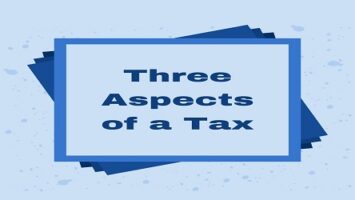
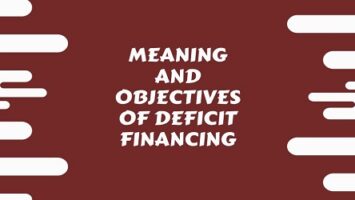

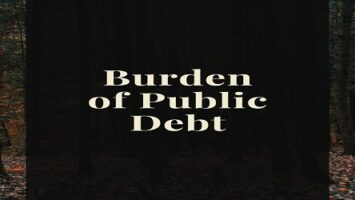
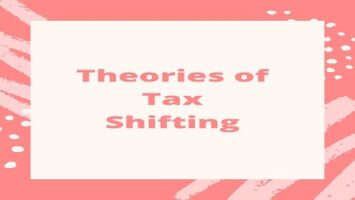

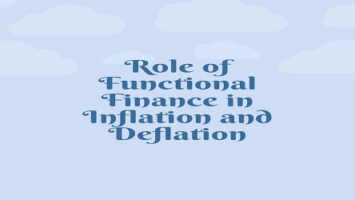
Comments (No)